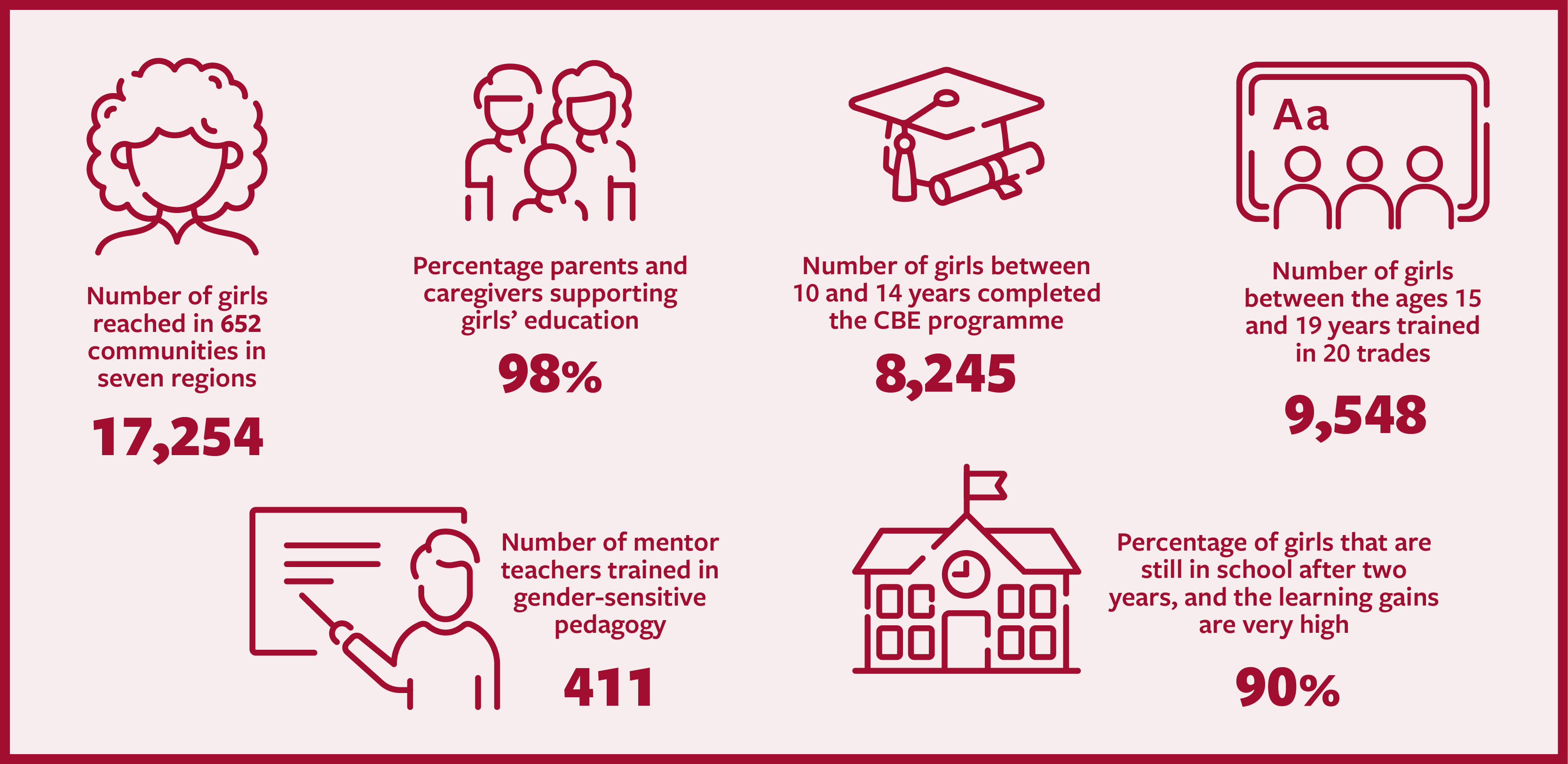Project
Strategic Approaches to Girls’ Education (STAGE)
The Strategic Approaches to Girls’ Education project supported 17,254 girls and was implemented by World Education Inc in Ghana.
The barriers affecting education are interrelated throughout community, school and system levels, impacting all children, but disproportionately disadvantaging girls. The project worked in communities with high levels of extreme poverty, and financial challenges was a major barrier to education. In addition, deep-seated traditional and social norms were resulting in early marriages, pregnancies and a high chore burden on girls, which was also having a negative impact on girls’ ability to complete their education. Under-resourced schools, rigid systems and a loaded curriculum was unable to meet girls’ needs in rural communities. In addition, little funding was allocated to vocational training and apprenticeship programmes, so few opportunities existed.
The project implemented two programme tracks for highly marginalised girls. Younger girls (aged 10 to 14) were provided with nine months of an accelerated learning programme (ALP) alongside life skills training, before being supported to transition to formal school. Older girls (aged 15 to 19) were supported on a vocational and employment track, with a focus on literacy, numeracy and vocational skills. The project tackled barriers at the individual, community, school and system levels, working closely with caregivers, community members and school staff. STAGE also worked to reduce financial barriers and to put girls on pathways that would break the cycle of poverty.
Main activities
- Delivering a nine-month Accelerated Learning Programme (ALP) to girls 10 to 14, alongside life skills training and supporting them to go back to formal school, through catch-up classes.
- Delivering a nine-month literacy and numeracy programme to girls aged 15 to 19, and an eight-month vocational training programme with a focus on life skills, financial and digital literacy.
- Partnering with local master craftsmen/women and local institutions to provide learning and employment opportunities for girls.
- Training teachers in effective teaching methodologies and building awareness around gender, social inclusion and marginalisation with teachers and in teacher educational institutions.
The project in numbers

Lessons learned
Seeing the tangible benefits of girls’ education helps shift negative attitudes. The project’s Endline Evaluation found a critical reason for a positive shift in support to girls’ education is family and community members’ first-hand experience of the positive effects and overall impact of girls’ education on their families and communities. This was particularly true when girls started to generate their own income.
Inclusive strategies need to be integrated into a programme at all levels, from recruitment through to evaluation. Through the implementation of the social inclusion component of the project, and through the work with SEN schools and learners with disabilities, all stakeholders deepened their knowledge on disability and inclusion. This had a positive knock-on effect as girls, caregivers, programme staff and wider stakeholders started fostering more inclusive practices in their homes, workplaces and communities
Leveraging existing structures helps in strengthen community ownership and reduces the tendency of duplication. The project used existing community structures during community who were able to oversee and monitoring education programmes at the community level. Through this approach, the project built the capacity of community leaders to continue support to vulnerable learners in their communities.
A comprehensive mapping tool ensured that the most vulnerable learners, including those with disabilities, were targeted. This tool helped the project team carry out detailed mapping and validation and analyse different categories of vulnerability and marginalisation to ensure they were reaching the girls who most needed support. This tool is now used by the Complementary Education Agency and the Education Outcomes Fund (EOF) team.
World Education Inc. (WEI): https://www.worlded.org/
